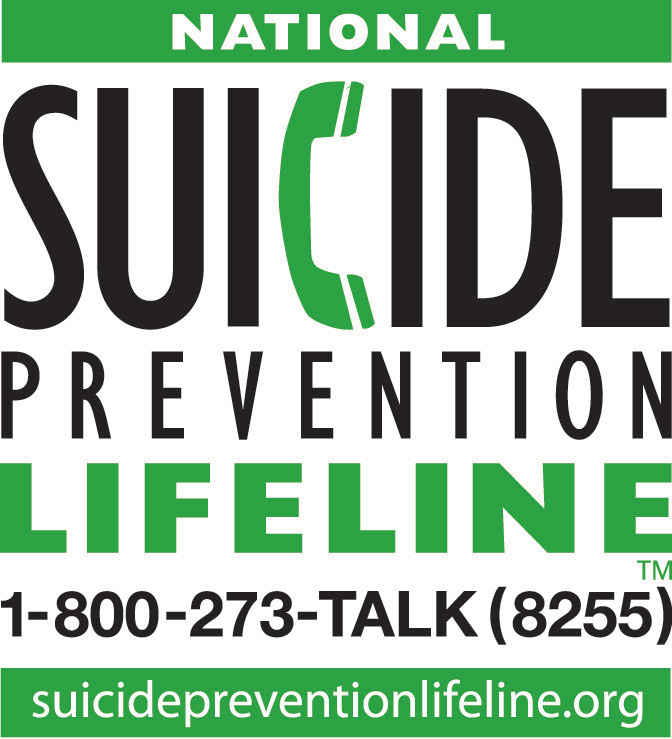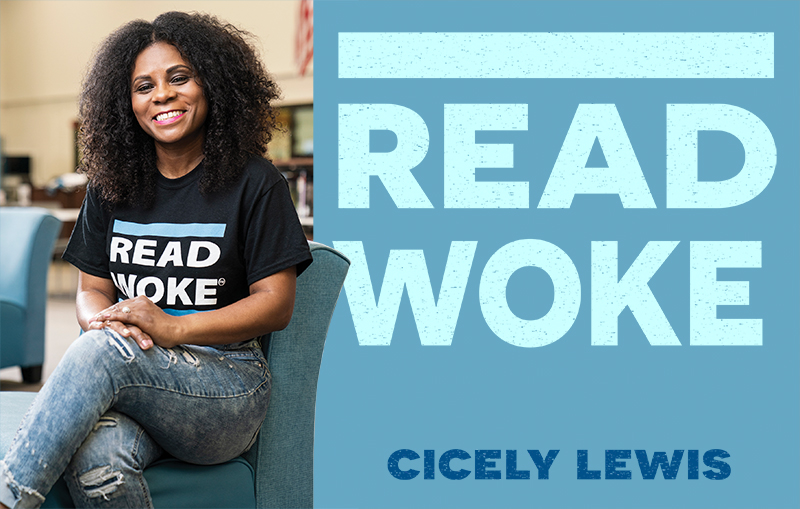The Weight of Our Words: Reflections on how we talk about mental health and why it matters
Trigger Warning: Please note, mental illness and suicide are discussed in the following post.
Before you begin reading this post I wanted to let you know that I have The Teen’s full permission to share this with you.

As I walk up to my teenage daughter to pick her up from her Sunday School class, I can immediately see that she is upset. She has what I like to call her angry posture: Her arms are crossed across her body. She is rigid. She is closed off. Her face is a mask. When I ask her what’s wrong, she kind of tilts her head to the door and mouth’s the words “in the car” to me. I know whatever happens next is not going to be good.
Her feelings pour out of her as soon as she closes the door. “X (the youth leader) said that mental illness is caused by demons. She basically just told me that I’m possessed by demons and I am so angry.” We continued to talk on the drive home and she explains to me that today’s Sunday school lessons was about demons – or maybe it was about mental illness, I’m not sure how it all started – and that the youth leader kept implying that the underlying cause of mental illness was demons and demon possession. The underlying cause, she emphasized, was demons.
ADVERTISEMENT
ADVERTISEMENT
This is how the rest of our day and night went. I would ask The Teen a question, say “what do you want for lunch?” And she would reply with her answer followed by, “but what do I know, I’m possessed by demons.” Any statement she made would be followed up by a dismissal, “but what do I know, I’m possessed by demons.” It was heartbreaking and angering to witness. I was angry. I was heartbroken. I was in full parental damage control.
You see, for several years now my teenage daughter has been in counseling for an anxiety disorder. She comes by it rightfully, regular TLT readers know that I have shared very openly my own struggles with depression and anxiety. Genetics is a bitch sometimes and you will never experience worse mom guilt than realizing that you have passed down the very worst parts of you and have to watch your child struggling with the very things that have haunted you for a lifetime. I have worked hard to protect my child from the very thing that had just happened.
The Teen had her first panic attack in the 7th grade, ironically at another church youth event. She sat in a chair listening to a sermon as the boy behind her reached out and started stroking her hair. She fled to the bathroom where she experienced what would turn out to be her first panic attack. Later that night she came home and told me that she thinks she had a panic attack and as we discussed what she experienced as I told her that yes, it sounded like she had and we would keep an eye on things to see what happens. And yes, we also talked about how it was not okay that this boy had touched her without her permission.
Over time, she would have a couple more panic attacks and we started doing the work that we needed to do to help her with her anxiety. At night I would go into my room and cry because I was heartbroken to realize that my beloved child had gotten the very worst parts of my broken brain. During the day, we talked and worked on getting the help she needed to live a life with a generalized anxiety disorder.
So when this youth leader spent the morning talking about people with mental illnesses being possessed by demons, it was personal and painful for her. We’ve done a lot of work in my house to erase the stigma associated with mental illness. I do that work because I want people to not feel shame about mental illness so that they will reach out and ask for and receive the help they need. I do that work because I have lost far too many people to mental illness and suicide. I do that work because I know how close my own children have come to losing their mother several times in the last decade. I do that work for me. I do that work for my daughter. I do that work for the 1 in 4 people who struggle with mental illness.
And in the course of one brief Sunday School lesson, that work was being undone by someone that I had entrusted my daughter’s spiritual and emotional well being with. And I was angry. No, I was livid.

One of my first difficult encounters in the library dealing with mental illness occurred in my very early twenties. I was working as a YA paraprofessional in a public library while working on my degree in youth ministry at a local conservative Christian college. Yes, it’s true, I have a degree in youth ministry from a conservative Christian college. My faith is very important to me. I had arrived at work and soon a young man came in, agitated. He told me he thought he was possessed by demons and that he wanted books that told him how to get the demons out of him.
I was in way over my head here. This was a young man clearly struggling with mental health issues and I was young and naive. I found what I could find in the collection about the topic he had asked for, I gave him a Bible, and I also gave him information about local mental health services hoping that he would seek and find the help that he needed. I talked to my supervisor and we explored what we could legally say and do to help this young man. At the time, I didn’t know his name or anything about him. It was terrifying and overwhelming and it was the first time I realized the full weight of my job.
Although that was the first time I saw this young man, it was not the last. He began coming into the library fairly regularly. He never spoke to me of demon possession again. He would eventually assault another patron and begin regularly threatening me. In the end, for everyone’s safety, he was eventually permanently banned from the library, a measure that libraries only ever use in the most extreme cases. I don’t know what happened to him, but I will never in my life forget that first encounter with him. I will never forget the desperation in his eyes, the fear I felt for him, and the ways in which I felt so unprepared and so inadequate to help him. I will never forget how his fear that he might be possessed by demons haunted him and prevented him from truly understanding that what he needed was support and care for a mental health issue.
Over the years, like any public library employee, I have worked with many people struggling with mental health issues of varying degrees. It never gets easier.
Resource: The Clam Before the Storm: How Teens and Libraries Can Fight Mental Illness

My child is not possessed by demons. She is intelligent, kind, and compassionate. She is, like me, one of the 1 in 4 people who struggles with a mental health issue. She has an illness with known causes and known treatments and she deserves respect, support and medical care just the same as any other person struggling with a chronic illness. Getting proper care and support is vitally important. It can literally be the difference between life and death.
We’ve been wrestling with what was spoken at church for the past few days. My teen is very lucky, she lives in a home where she is loved, supported and cared for. She knew that what was said was factually incorrect and that she could talk about what was said and how it made her feel and we’ve been working through it. Not every teen in that room will be as lucky, some of them may be struggling with their own mental health issues and now, once again forced to feel confusion and shame; they may delay seeing out the help that they desperately need. This is the weight of our words.
When we talk incorrectly about mental illness or attach stigma or shame to mental illness, people die. Fear, shame, confusion and stigma can all lead to people failing to seek out care and treatment, putting their lives in actual risk. I recently heard on NPR that the suicide rates in America are increasing at an alarming rate across all demographics, including our teens. Our teens are in crisis and what we say matters.
How we speak about mental health matters.
ADVERTISEMENT
ADVERTISEMENT
Watching my child struggle these past few days with the impact of a 45 minute Sunday School lesson has reminded me once again about the duty we have when we are entrusted with the care of youth. How we speak, what we say, whether intended or not, can have significant weight. We will often never know the full extent of our impact on our teens, both positive and negative, but there is a weight to our words that they carry with them.
I’m pretty sure my daughter will never go to that church again. She doesn’t feel safe there. She doesn’t feel respected there. And she doesn’t trust that youth leader. And she feels shame; shame that I have worked so hard to tell her that she didn’t need to feel. I resent that I took my daughter to a place that was supposed to be safe and affirmed and she walked out feeling the exact opposite.
This week has been a stark reminder for me in a far too personal way that for those of us who work with teens, the weight of our words is a burden that our teens will carry with them long after we have forgotten that we have even spoken them. So choose your words wisely each and every time.
Please note: there is a lot of mental health information available, including information specific to teens and mental health. Please consult reputable resources, learn the statistics and the impact and how you can talk about mental health issues without causing harm to others.
Filed under: #MHYALit
About Karen Jensen, MLS
Karen Jensen has been a Teen Services Librarian for almost 30 years. She created TLT in 2011 and is the co-editor of The Whole Library Handbook: Teen Services with Heather Booth (ALA Editions, 2014).
ADVERTISEMENT
ADVERTISEMENT
SLJ Blog Network
2024 Books from Coretta Scott King Winners
Monster Befrienders and a Slew of Horror/Comedy: It’s a Blood City Rollers Q&A with V.P. Anderson & Tatiana Hill
Monkey King and the World of Myths: The Monster and the Maze | Review
Parsing Religion in Public Schools
ADVERTISEMENT








Omg, I dealt with similar things as a teen in my church. Or told that if I only prayed more, did more service, went to the temple more, that my depression and anxiety would go away. Not too long ago I had a severe panic attack at church. When I mentioned this to a church leader, he laughed. Seriously. Cyber hugs to your daughter. I hate hearing that teens have to hear ignorance like what she experienced.
It breaks my heart that so many good Christians are dismissive of emotional and mental disorders. Not comprehending is one thing not having compassion is failing one another. Granted there are some folks that are drama driven and attention seeking- but there are many Christians that deal with depression, etc and it’s out of their hands. As for a youth pastor blaming everything on demons, that is an issue that needs to be addressed by the church- that is very dangerous misinfomation. Thankfully your daughter has an understanding mom but think of those teens that may not. I’ve prayed for your daughter, youth leader and you today. See you in heaven. 🙂
I am furious on the Teen’s behalf and on your behalf! UGH! I almost yelled out loud in a very quiet library.
HOW DARE THAT GUY be whatever combination of uninformed, stupid and WRONGHEADED to say those things!!!! In a church setting!?! to TEENS!!! Grrr! How DARE!!!
I am very sorry this happened to the Teen and you.
I will keep you guys in my prayers.
And as you know, and the Teen is learning, it is possible to work through anxiety and depression, and have a wonderful awesome life full of joy and success. And even though we may never meet in real life, I have your back.
I am glad your daughter has your support and understanding. Every teen exposed to the words of that youth minister was damaged. Those struggling with mental health issues were further traumatized by such talk and those who consider themselves without challenges had their misguided prejudices validated. “Church” can be one of the most damaging environments young people encounter. This experience needs to be reported to someone in authority immediately.
I like the term mental health condition. We all have a physical condition and a mental condition. It seems a more neutral term than mental disorder or mental illness or disease. Your condition can be positive or negative, but the term is neutral.
We have many things in common, including our faith. I am a high school teacher-librarian and I struggle with depression and anxiety. My faith is very important to me and I also have tween/teenage children. It’s a fine line to walk some days—all these different roles— but the thing that struck me most was the youth pastor’s attitude and speech about mental illness. My heart aches for your daughter and for you. I’m praying for you both.